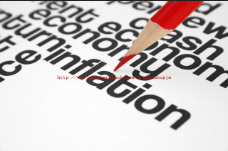Cashing in on Too-Big-to-Fail
Wall Street titans are cashing in on, shall we say, cronyish capitalism. As a part of the bank bailouts, stock warrants were issued to the Federal Government. Rachael Louise Ensign explains in the Wall Street Journal,
The warrants date back to the financial crisis, when the government invested about $250 billion in about 700 banks as a part of the Troubled Asset Relief Program, or TARP. As part of the program, which aimed to shore up bank capital and restart lending, the government got warrants to buy shares in the banks. The Treasury Department started getting rid of the warrants in 2009, a process that included selling some off to investors.
What also happened in 2009 was FASB changing the accounting rules for banks. At the time, the FASB folks were put on the defensive with their blatant accounting chicanery to breathe life into bank balance sheets. “These are extraordinary times and the FASB has responded swiftly to the critical needs of the capital markets,” Neal McGarity, a FASB spokesman, told reporters after the votes.
The Associated Press reported,
An estimated $2 trillion in soured assets is weighing on banks’ balance sheets. The mark-to-market rules have forced banks to take steep write-downs on subprime mortgage securities and other toxic assets, as the industry has reeled from the housing market slump and banks have foundered and failed.
The new guidelines remove the presumption that if there isn’t a current active market for assets, they must automatically be considered distressed. They also will allow banks to avoid reporting some losses on securities by splitting them among factors like anemic markets or fluctuating interest rates that won’t have to be counted toward net income or loss.
In simple terms, “Some experts and industry officials said the move will help resuscitate banks, allowing them to increase earnings and carry less capital as a buffer against potential losses,” wrote the AP.
So, with FASB shocking the banks back to life with their rule-changing paddles, and the Fed offering banks a place on its bloated balance sheet to park cash and earn a risk-free 25 basis points, a few canny investors scooped up the warrants and waited for the Fed’s cheap money to raise all boats, even the comatose bank boats.
Here we are nearly 10 years later, as the warrants are about to expire, and fund managers who read the bail-out tea leaves are ready to cash in for having put their money on the politically connected banksters.
For instance, “The Miller Opportunity Trust mutual fund said it has notched gains of about $77 million on a $24 million investment in J.P. Morgan warrants.”
The Treasury made $5 billion selling the warrants, but Uncle Sam still left billions on the table. “The TARP warrants still trading in Bank of America, J.P. Morgan, Wells Fargo & Co. and PNC Financial Services Group Inc., for example, are worth more than $2 billion more on paper than when the government sold,” writes Ms. Ensign.
Too-Big-To-Fail has only become bigger, with bank balance sheets a bigger share of GDP than 2008. Atle Willems writes on Seeking Alpha,
The average bank is therefore more "systemically" important today than back then as the average bank's "share of GDP" has increased 60.5% from 2008 to 2016 (calculated as av. total assets per bank in the table above divided by GDP for the quarter). Whatever difficulties the banking system will experience going forward therefore will have a potentially bigger negative impact on the economy than in 2008.
Whatever difficulties is probably located squarely in the area of derivatives exposure. Michael Snyder wrote on ZeroHedge,
The recklessness of the “too big to fail” banks almost doomed them the last time around, but apparently they still haven’t learned from their past mistakes. Today, the top 25 U.S. banks have 222 trillion dollars of exposure to derivatives. In other words, the exposure that these banks have to derivatives contracts is approximately equivalent to the gross domestic product of the United States times twelve.
Those warrant buyers will likely have their chance to buy bail-out warrants again, soon.






